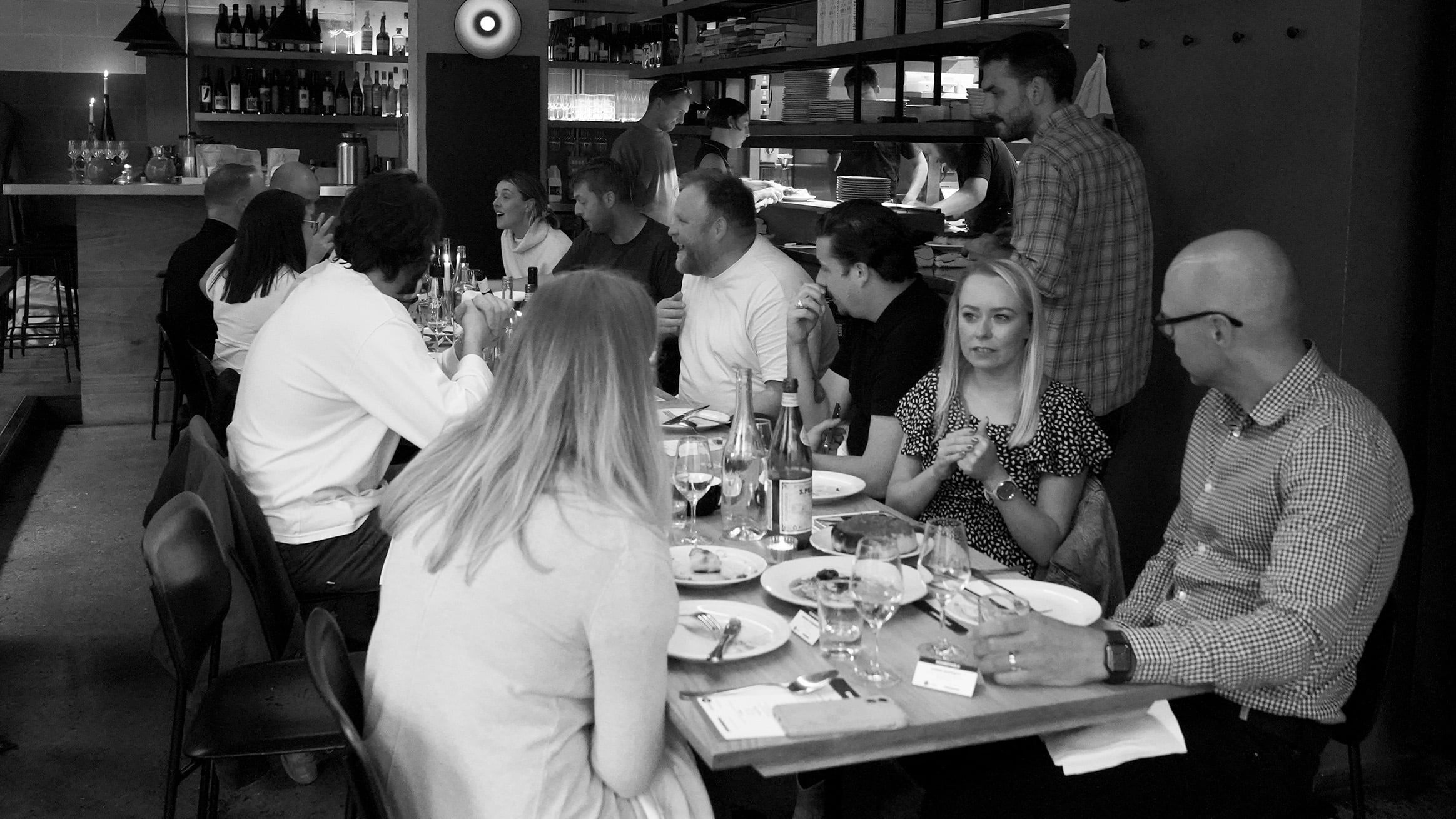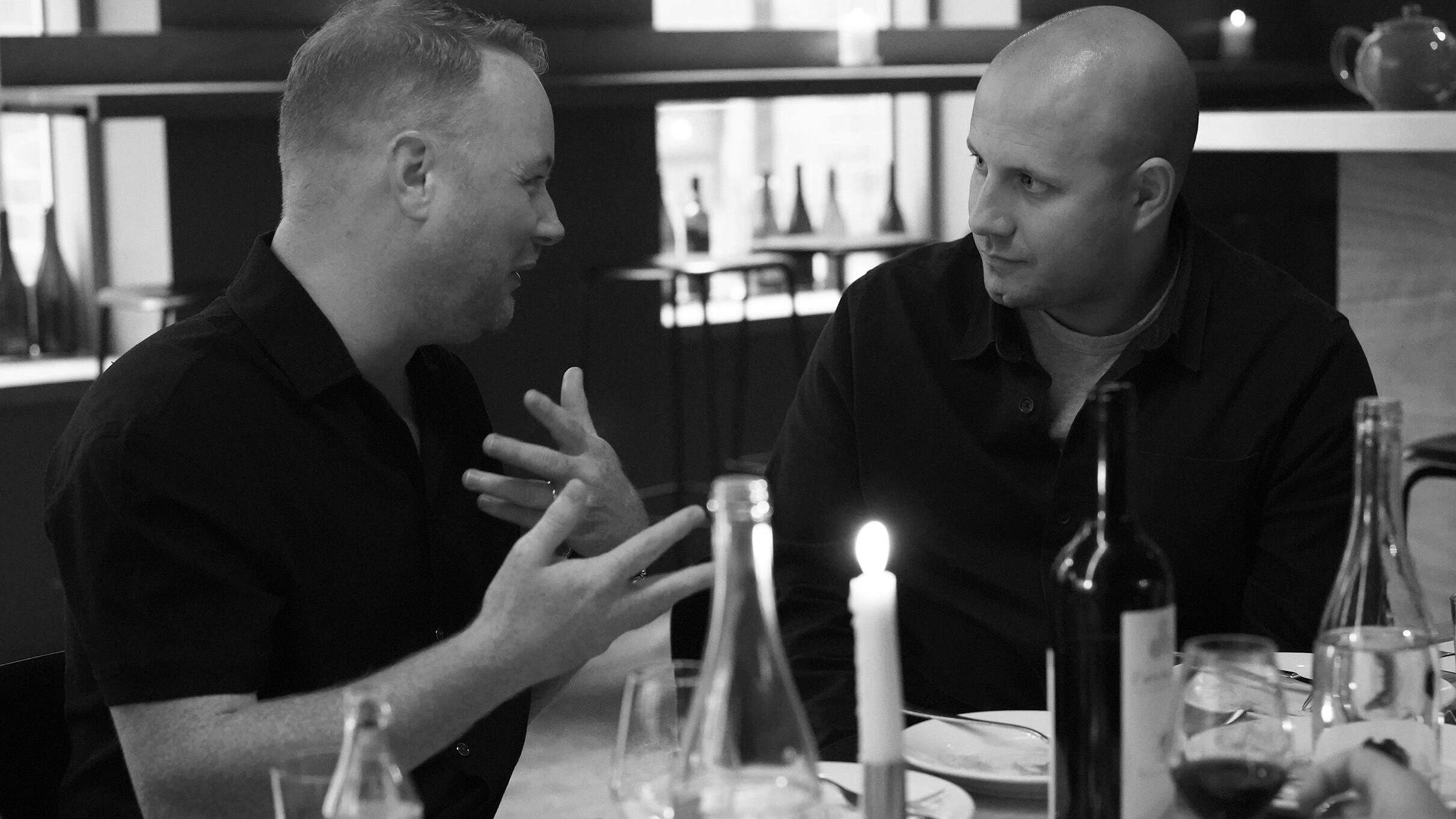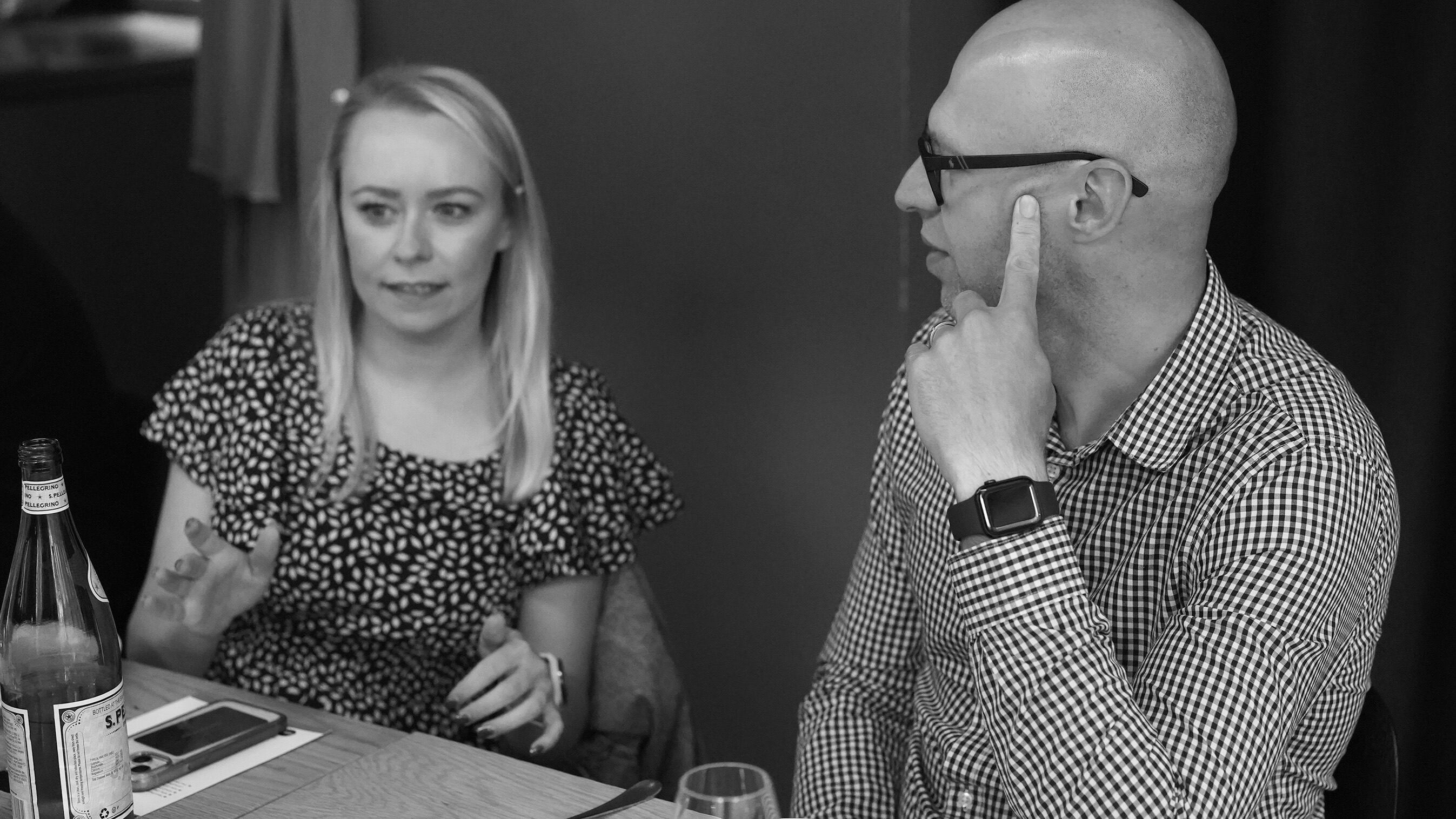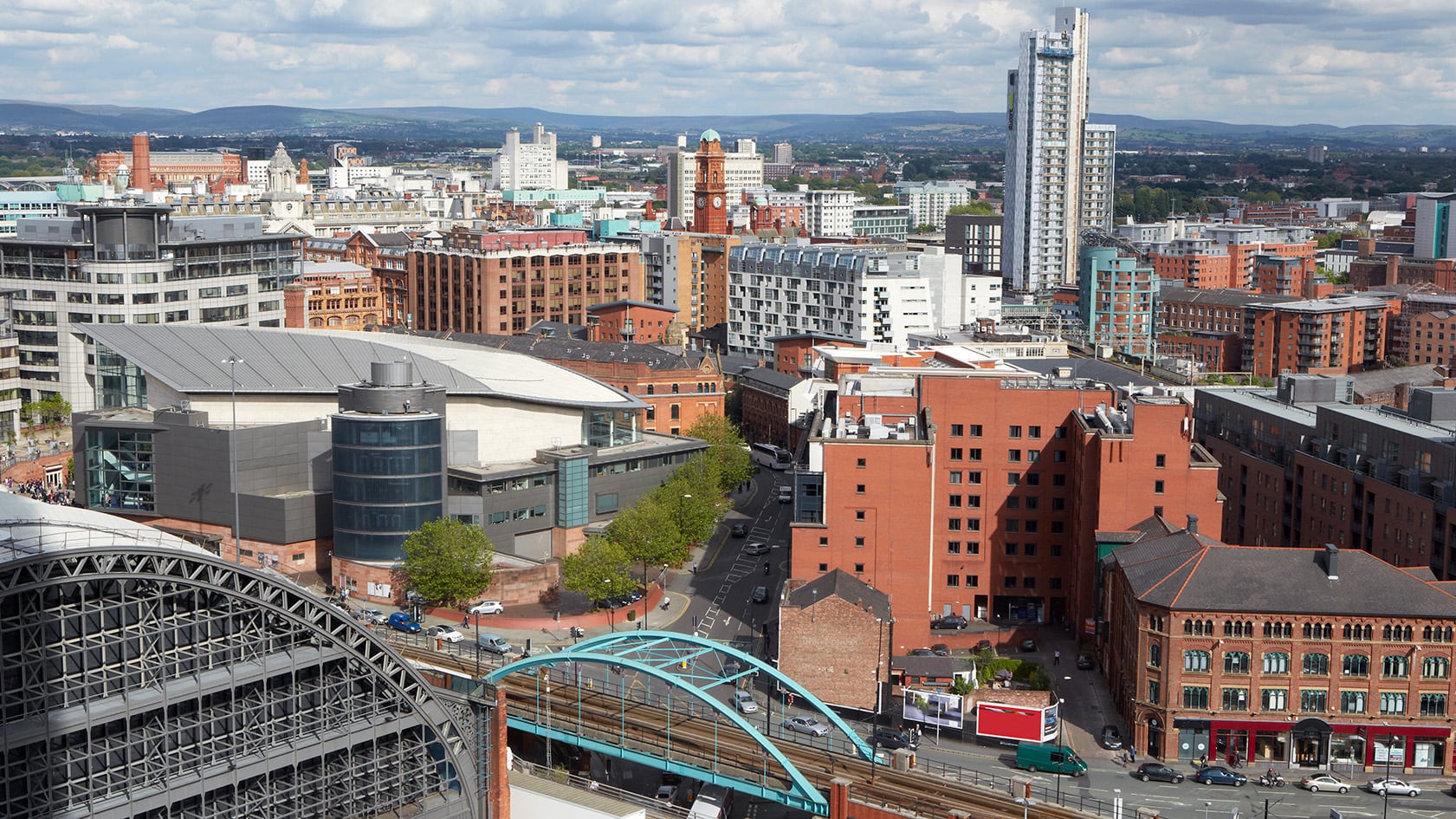The Manchester restaurant scene has gone from strength to strength over the past decade but that doesn’t mean it’s an easy place to run a restaurant. While the city has blossomed into a dynamic dining destination — with neighbourhoods like Ancoats and Spinningfields and NOMA coming into their own — operators are still grappling with rising costs, staffing pressures, and unpredictable trading conditions.
Last month, Restaurant teamed up with events booking platform Tripleseat to hold a roundtable at top Manchester restaurant Erst. The event brought together a mix of new and established names to reflect on the challenges and opportunities facing the city’s hospitality scene.
Several attendees pointed to the city’s sense of community as a key differentiator from London, where the restaurant world is viewed as more cutthroat. Operators praised the city’s increasingly sophisticated dining culture.
While Manchester is still a place where people like to go ‘out out’, the quality of F&B has increased dramatically over the past 10 years or so thanks to both homegrown operators and newcomers (the latter typically, but not always, come from the capital). But they also noted the financial strain caused by inflation, rent hikes, and labour costs — issues made worse by a city-wide push to keep prices affordable.
The conversation also touched on the evolution of Manchester’s dining identity, the warm (if wary) welcome for London brands, and the pressures hot weather brings in a city not built for summer. But despite all these challenges, the Manchester scene remains dynamic and exciting.
Round the table
Christian Coates, founder, Orka Koncepts
Richard Cossins, co-founder, Higher Ground and FLAWD
Sarah Ferris-Jones, general manager, Dishoom Manchester
Ben Humphreys, co-founder, Bangkok Diners Club
John Karemy, marketing manager, Tripleseat
Oliver Lawson, founder, Coin and Salta
Maria McCann, director of operations, Blacklock
Shaun Moffat, chef patron, Winsome
Jamie Pickles, co-founder, Stow and Trof
Introductions
Shaun Moffat (SM): Winsome is a nose-to-tail British restaurant. We launched a few months ago near the Gay Village. I’m originally from the South but I’ve lived in Manchester for three years.
Maria McCann (MM): Blacklock is a British chophouse. We have five sites in London and launched our first regional site in Manchester seven months ago. I’ve really fallen in love with the city’s culture since we’ve been up here.
Christian Coates (CC): Orka Koncepts includes Australasia, Grand Pacific, Dear Sailor, and Casa, plus a catering arm.
Oliver Lawson (OL): I’m the token out-of-towner. We run Coin and the recently launched Salta in Hebden Bridge, about 45 minutes’ drive from Manchester.
Ben Humphreys (BH): With my wife Bo and business partner Danny Collins, I recently opened a new-wave Thai restaurant in the top room of The Edinburgh Castle in Ancoats. Before that, we had District, which was a bit more progressive.
Sarah Ferris-Jones (SFJ): I’ve been with Dishoom for seven years and opened our Manchester site six years ago.
Jamie Pickles (JP): Stow opened about seven months ago. It’s an open-fire restaurant. We’ve had Trof in the Northern Quarter for about three years.
Richard Cossins (RC): I run FLAWD and Higher Ground along with my co-founders Daniel Craig Martin and Joseph Otway.

How has the restaurant market in Manchester evolved over the past decade?
SM: Hawksmoor and Erst were big catalysts when they arrived in 2015 and 2018. They got the ball rolling.
BH: I’ve lived here for 15 years and that was really the start of a boom. Manchester used to be more of a drinking town without much of a food scene. Now, we’re seeing a lot more operators wanting to come here. Rents are lower and the city is growing fast.
CC: It’s evolved so much that even established operators have had to adapt. I recently took on Australasia. It’s iconic, but not much had changed since its 2010 launch. I started out with Living Ventures 20 years ago and, back then, Tim Bacon and Jeremy Roberts were trailblazers.
JP: Trof has built its own identity over 20 years. There was only so much we could change. It’s been refreshing to start something new with Stow.
RC: When we were choosing a location seven years ago, Ancoats was clearly on the up and needed amenities. That’s when we launched FLAWD. Higher Ground came later with a more central location. It’s not the most obvious site, but restaurants help build neighbourhoods. Food and drink are essential to cities. We’re launching Bar Shrimp next to Higher Ground — part-lounge for the restaurant, part-standalone cocktail and seafood bar. We’ve even hired a director of music.
JP: When I moved here 14 years ago, everything was centralised. Now, neighbourhoods have emerged. Ten years ago, no one would have opened in Ancoats. But Manchester isn’t that spread out — you can walk across it in 30 minutes.
SM: We’re on Princess Street, near the universities. It’s an up-and-coming area. One thing I love about Manchester is how supportive the industry is. It helps that we’re not all crammed together — each area has its own cluster.
BH: In the South, Thai food in pubs is common. It’s strange that it hasn’t caught on up here. Most Thai restaurants in Manchester are simple, family-run places. We’re ingredient-led but not trying to reinvent the wheel — it’s the food I eat at home, just slightly refined and more creative.
OL: Hebden Bridge is a gentrified commuter town, but it’s still split. Many locals wouldn’t consider a place like ours. We recently opened a sandwich shop nearby, and some visitors come from Manchester on weekends. At first, people didn’t get what we were doing. They’d look at the menu and leave. It wasn’t what they were used to.

What are the biggest challenges right now?
SM: My business partners recently closed their restaurant, Medlock Canteen. It’s a tough time for the industry — really sad to see. It’s hard to see how things will get fixed. The industry is still very London-centric, and the North is treated as one big place. But now I live here, I see how different Manchester, Leeds, and Liverpool really are.
BH: We had to close District a few years ago, which was heartbreaking. The timing was awful — we got the keys just before the pandemic. But I’m still proud of what we did there.
How are London-founded brands received in Manchester?
SFJ: I feel like I’ve run three Dishooms — pre-Covid, during Covid, and post-Covid. When we launched, some people were suspicious of London brands. There was a lot of work to do to make sure we connected with the community. It’s taken time, but we’re now seen as part of the Manchester restaurant scene.
MM: We’ve found the city very welcoming. It’s also full of passionate people who want careers in hospitality, which is not the case in some other major UK cities in my experience. We were nervous, arriving alongside other London brands like Flat Iron, Caravan, and Big Mamma. Mancunians are open to London brands — as long as you don’t shove ‘London’ in their face. Being humble matters.
What makes Manchester’s dining scene unique?
MM: At Blacklock, custard is on the menu all year. And we sell a lot of gravy. In London, people might grab a quick bite then go out for drinks. In Manchester, they go home, get dressed up, and make a night of it. People drink at the restaurant before and after their meal. We’ve got a bigger bar here for a reason — it’s a boozy city.
How is trading at the moment?
RC: Competition is healthy — it shouldn’t be feared.
BH: There’s enough space for everyone.
MM: It pushes everyone to raise their game.
SM: I cooked in London for 15 years — it’s a lot more cutthroat. Here, there’s camaraderie. In London, you might be friendly with other operators, but it’s not exactly supportive.
BH: Manchester has a strong sense of community. We all want each other to do well — it benefits everyone. I’d never wish closure on anyone.

How have rising costs and rents affected operations?
CC: Rents have risen dramatically. There are easier ways to make money than running a restaurant. Landlords don’t always share the industry’s sense of community. Some demand personal guarantees, large deposits, and offer little support. That’s tough on new and small operators.
JP: National Insurance cost us £200,000 across our sites. Manchester wants affordability — we can’t just raise prices by 7–8% overnight. We’re exploring ways to control costs creatively. Our biggest expense is payroll, and cutting staff would hurt the hospitality experience. We’d rather be smart with ingredient choices — for example, buying different meat cuts.
JP: We’ve also added a service charge to bills. It’s become the norm, though we didn’t want to do it initially. Our biggest challenge right now is actually the weather — both of our restaurants are quite wintery. When it’s hot, business slows.
SM: Same for us. Manchester isn’t built for summer — most places don’t have outdoor seating, so we lose covers when the sun comes out.
MM: NIC increases cost us £750,000 across the business. Beef prices have risen 48% in eight months, adding another £350,000. We’ve made operational changes like shifting opening and closing times slightly, which has helped. We’re also investing in tech to reduce labour costs and working with farmers to use less obvious cuts — pork belly used to be something we bought to help our suppliers, now it’s the most expensive part of the pig.
Is AI part of the solution?
MM: Yes. We’re using it to analyse guest sentiment. One tool pulls feedback from across platforms and creates automated reports. It’s helped guide decisions around pricing and ambiance. We’re also looking into rota platforms that forecast staff needs based on trading data.
John Karemy (JK):We’re really starting to lean into AI as a business, looking at how to use the technology in ways that provides real value, not just gimmicks. We’re a platform built by hospitality professionals, for hospitality and have taken the time to hear what our customers want out of AI, what pain points it can unlock for them. For example, we’ve partnered with voice AI platform AddSalt. It answers phones 24/7 and feeds info directly into our system, meaning the phone never goes unanswered and revenue opportunities are never missed.


